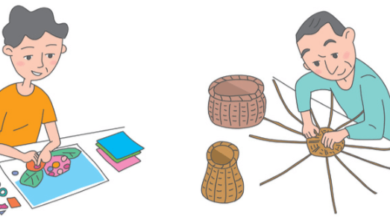Navigating Friendships and Peer Pressure with the Support of Therapy

Friendships during the teenage years can be both rewarding and challenging. For many teens, friends become central figures in their daily lives, shaping how they see themselves and the world. At the same time, the pressure to fit in and meet expectations from peers can create stress, anxiety, and even unhealthy behaviors. This balance of seeking acceptance while maintaining individuality often leads to inner conflict. Therapy can provide essential guidance in helping teens navigate these dynamics with confidence and resilience.
The Influence of Friendships on Teen Development
Friendships in adolescence often play a major role in identity formation. Teens learn how to share, trust, resolve conflicts, and build meaningful bonds. Positive friendships can encourage growth, boost self-esteem, and create a sense of belonging. On the other hand, negative or toxic friendships may lead to feelings of rejection, isolation, or the pressure to conform in unhealthy ways. Recognizing this impact is the first step in helping teens find supportive and genuine relationships.
Understanding Peer Pressure and Its Effects
Peer pressure is a powerful force in the teenage years. It can take many forms—encouragement to try risky behaviors, pressure to keep up with certain trends, or subtle signals that suggest a teen must act a certain way to be accepted. While some forms of peer influence may encourage healthy habits, like studying together or joining sports teams, others can push teens toward choices that harm their emotional or physical health. Left unaddressed, ongoing peer pressure can lead to stress, anxiety, and difficulties with self-identity.
How Therapy Helps Teens Build Resilience
Teenagers can talk about their feelings and thoughts about their social situations in therapy without fear of being judged. With the guidance of a trained professional, teens learn strategies to cope with pressure, identify red flags in friendships, and practice assertive communication. For example, role-playing exercises in therapy can help a teen practice saying “no” without fear of losing friends. By learning these skills, teens develop the confidence to stand by their values while still maintaining healthy connections with peers.
Therapy as a Tool for Self-Discovery
One of the most valuable aspects of counseling is that it helps teens explore their own identities beyond what peers may expect from them. A therapist can encourage reflection on personal strengths, values, and goals, which makes it easier for teens to choose friends who truly support their growth. This process of self-discovery also builds resilience, making them less likely to give in to negative peer influence. For families seeking support, options such as teen therapy San Diego provide a tailored approach that addresses the unique challenges teens face in today’s world.
See also: Arcade Video Game New Orleans: 19 Must-Experience Spots for Nostalgic Gaming & Nightlife
Strengthening Family Support Through Counseling
Peer relationships are important, but family support remains a crucial foundation. Therapy often includes sessions that involve parents, helping them understand what their teens are going through and how they can offer encouragement without judgment. Open communication at home allows teens to feel safe discussing the pressures they face, reducing the likelihood that they will struggle silently.
Building a Brighter Future
Navigating friendships and peer pressure is part of every teen’s journey, but no one should have to do it alone. With the support of therapy, teens can learn to recognize which relationships are healthy, set boundaries where needed, and resist negative influences with confidence. These skills not only help them make friends better now, but they also help them build stronger, healthier bonds as adults.
Therapy doesn’t remove challenges, but it equips teens with tools to meet them head-on. By building resilience, fostering self-awareness, and encouraging open dialogue, counseling empowers teens to thrive—even in the face of peer pressure.







